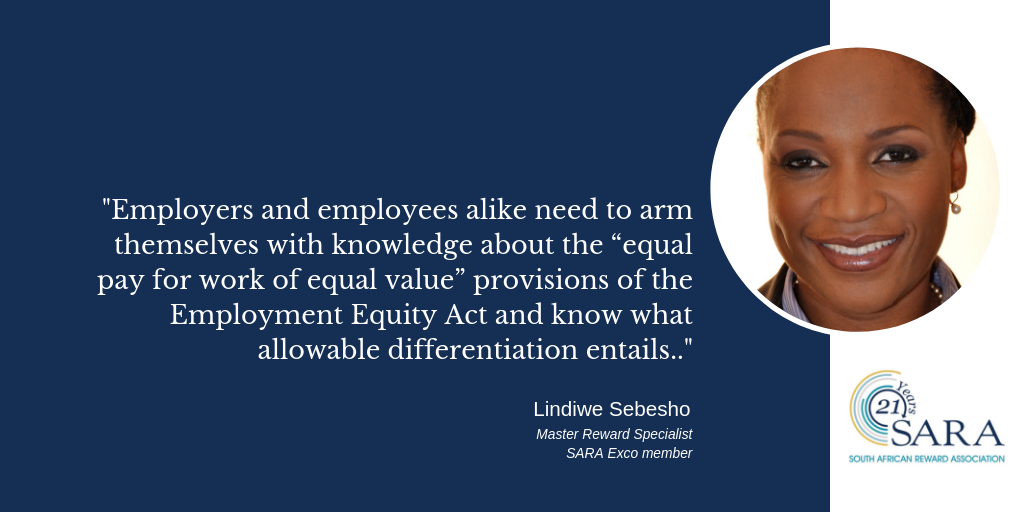|
The Employment Equity Act provides for the equitable treatment of people in the workplace by ensuring that there is no unfair discrimination on the basis of race, gender, religion, language, political affiliation, disability, age etc.
However, there are certain instances where employers may differentiate the terms and conditions of their employees so long as such differentiation is not based on the above grounds or any other impermissible arbitrary ground. Lindiwe Sebesho, Master Reward Specialist and executive committee member of the South African Reward Association (SARA), says with the introduction of the “equal pay for work of equal value” legislation, a lot has been said about when employers can justifiably differentiate the way they pay their employees. The grounds The grounds on which an assessment of whether differentiation is permissible and fair are quite specific and include, amongst others - seniority or length of service; qualifications, ability, competence or potential; performance, quantity or quality of work; demotion, skills shortage, type of employment contract (permanent vs temporary). It is important that employers consider these factors holistically to ensure their justification for the differentiation is sound:
Burden of Proof Sebesho says the fact that the burden of proof is on the employee makes it very difficult for employees to raise issues or concerns related to perceived unfair differentiation. “It can be expensive and emotionally draining as the complainant employee has to make a prima facie case of discrimination and set out the grounds on which he/she believes they have been discriminated against.” A claim of discrimination has to be based on listed or arbitrary grounds. Listed grounds include discrimination on the basis of race, gender, language, political affiliation or age and religion, etc. In terms of arbitrary grounds, the employee will have to show what conduct of the employer has impaired his/her fundamental human dignity. Sebesho advises employers and employees alike to arm themselves with knowledge about the “equal pay for work of equal value” provisions of the Employment Equity Act and know what allowable differentiation entails. ENDS MEDIA CONTACT: Juanita Vorster, 079 523 8374, [email protected], www.atthatpoint.co.za For more information on SARA please visit: Website: www.sara.co.za Twitter: @SA_reward LinkedIn: South African Reward Association Facebook: SARA – South African Reward Association
0 Comments
Leave a Reply. |
Archives
March 2023
Welcome to the South African Reward Association newsroom.
Categories
All
|


 RSS Feed
RSS Feed